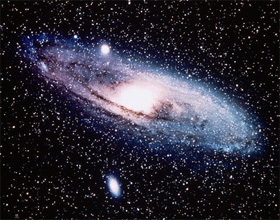Masjid Bandaraya Kota Kinabalu, Sabah, Malaysia
This Eid is the second Eid many of us spend in quarantine. While the lockdow and precautions have relaxed in many places, we can expect the festivities to look very different, compared to previous years.
Eid Al-Adha comes at the end of the ten best days of the Islamic calendar year; Dhul-Hijjah Days.
In usual times, millions of pilgrims struggle through the heat and crowds to fulfill their Hajj while the rest of us long to be in their place. Khutbahs (sermons) across the world recount the story of Prophets Abraham (Ibrahim) and Ishmael (Isma`il) (peace be upon them) in detail.
This Eid offers us a unique spiritual perspective. So while we cope, let us not fail to take the opportunity to reflect on Prophet Ibrahim’s story.
Spiritual Disease is a Pandemic Too
Prophet Ibrahim also lived during a pandemic. It was not a pandemic of physical disease, but a pandemic of spiritual disease. His people disregarded the symptoms.
While coronavirus (COVID-19) has led to an upheaval of so many lives, the spiritual pandemic of Ibrahim’s time destroyed both the dunya (worldly life) and Akhira (Hereafter) of his people.
We read in the Quran what means:
{And mention in the Book [the story of] Abraham. Indeed, he was a man of truth and a prophet. [Mention] when he said to his father, “O my father, why do you worship that which does not hear and does not see and will not benefit you at all?
O my father, indeed there has come to me of knowledge that which has not come to you, so follow me; I will guide you to an even path.
O my father, do not worship Satan. Indeed Satan has ever been, to the Most Merciful, disobedient.} (Maryam 19:41-44)
Prophet Ibrahim witnessed the contagious ignorance of his people. Even as a young man, he called out the hypocrisy of his people. He would watch his very own father construct idols with his bare hands, only to sell them for people to worship.
His people were spiritually sick but refused to acknowledge the cure. Their excuse was simply that they found their ancestors doing the same. His attempts to contain this disease were through logical arguments; which the Quran clearly documented.
Heart Disease
There is a reason why scholars use the word “disease” and “sickness” to describe a heart that is heedless of God. Just as physical disease has the capacity to impair every body system; spiritual disease wreaks havoc on a person’s reality.
Prophet Ibrahim’s people would perform actions like offering their wealth and food to stone statues. Imagine how many families went hungry, how many poor people lost their money and how many opportunities were lost waiting for an “answer” from stones that men carved.
Prophet Ibrahim would continue to question these immoral practices, until his people would decide that a permanent quarantine was the only way to shut him up.
Many of us know the story. After Prophet Ibrahim destroys the idols of his people to prove that they are but an evil tradition passed on from their ancestors, his people decide to kill him. A raging fire is set; Ibrahim is chained and thrown into it. Little did his people know that their fire would be ineffective by the Will of God.
Lonely But Never Alone
We read in the Quran:
{Indeed, Abraham was a [comprehensive] leader, devoutly obedient to Allah, inclining toward truth, and he was not of those who associate others with Allah.} (An-Nahl 16:120)
One of the biggest trials of the pandemic is the chronic loneliness many have had to experience. It is a well-established fact that loneliness contributes to both physical and mental un-wellness. Humans are social creatures. We need human connection. But even Prophet Ibrahim experienced loneliness.
In the Quran, Allah the Almighty calls Prophet Ibrahim an “ummah.” Some scholars explain this verse to mean an expression of Ibrahim’s faith, worship and piety. Others say it has a more literal meaning: at one point, Ibrahim was the only faithful believer of his people.
Similar experiences of isolation would be repeated in Prophet Ibrahim’s life. But these experiences were always a reminder to him: his reliance is only on Allah. And in fact, he never was truly alone, because Allah was his friend:
{And who is better in religion than one who submits himself to Allah while being a doer of good and follows the religion of Abraham, inclining toward truth? And Allah took Abraham as an intimate friend.} (An-Nisa 4:125)
Uncertainty In Trying Times
As we social distance, I reflect on Ibrahim’s command to social distance from his beloved wife and child, Hajar and Isma`l (peace be upon them).
As we feel uncertainty about when the world will revert to a tolerable normal, I imagine the emotions felt by both Ibrahim and Hajar not knowing what Allah had planned for them.
I reflect on the uncertainty but trust in Allah that Ibrahim and Isma`l felt as they built the Kabah. I wonder what Ibrahim felt when Allah commanded him to call people to worship in the middle of a dry, barren desert even though his family constituted the world’s only believers in Allah.
As we celebrate Eid Al-Adha this year, let us not lose sight of the lessons from our beloved Prophet Ibrahim. We are in uncertain times and we’ve lost many beautiful lives. Many have and continue to be tested with unbelievable difficulty. There is much anxiety and fear to feel. But as believers, we seek strength from Allah and inspiration from the stories of his intimate friend, Ibrahim. - aboutislam.net






 “As people have certainly been influenced by me, I want to try and correct the enormous damage I may have done.” (Anthony Flew)
“As people have certainly been influenced by me, I want to try and correct the enormous damage I may have done.” (Anthony Flew)